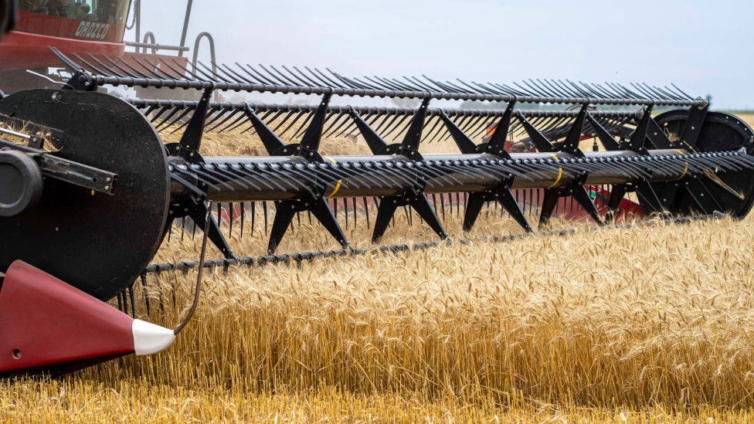The world is facing a "human catastrophe" from a food crisis arising from Russia's invasion of Ukraine, according to the President of the World Bank, David Malpass.
In an interview with BBC economics editor Faisal Islam, Mr Malpass, who leads the institution charged with global alleviation of poverty, warned that record rises in food prices would push hundreds of millions of people into poverty and lower nutrition if the crisis continues.
"It's a human catastrophe, meaning nutrition goes down. But then it also becomes a political challenge for governments who can't do anything about it, they didn't cause it, and they see the prices going up," he said on the sidelines of the IMF-World Bank meetings in Washington.
The World Bank calculates there could be a "huge" 37% increase in food prices, which is "magnified for [the] poor", who will "eat less and have less money for anything else such as schooling. And so that means that it's really an unfair kind of crisis. It hits the poorest the hardest. That was true also of Covid".
The price rises are broad and deep, he said: "it's affecting food of all different kinds oils, grains, and then it gets into other crops, corn crops because they go up when wheat goes up".
There was enough food in the world to feed everybody, he said, and global stockpiles are large by historical standards, but there will have to be a sharing or sales process to get the food to where it is needed.
Mr Malpass also discouraged countries from subsidising production or capping prices.
Instead, he said, the focus needed to be on increasing supplies across the world of fertilisers and food, alongside targeted assistance for the very poorest people.
The World Bank chief also warned of a knock on "crisis within a crisis" arising from the inability of developing countries to service their large pandemic debts, amid rising food and energy prices.
"This is a very real prospect. It's happening for some countries, we don't know how far it'll go. As many as 60% of the poorest countries right now are either in debt distress or at high risk of being in debt distress," he said.
"We have to be worried about a debt crisis, the best thing to do is to start early to act early on finding ways to reduce the debt burden for countries that have unsustainable debt, the longer you put it off, the worse it is," he added.
Latest Stories
-
Real Madrid beat Sevilla to keep pressure on leaders Atletico
31 minutes -
Liverpool put six past Spurs to go four points clear
33 minutes -
Manchester United lose 3-0 at home to Bournemouth yet again
37 minutes -
CHAN 2024Q: ‘It’s still an open game’ – Didi on Ghana’s draw with Nigeria
45 minutes -
CHAN 2024Q: Ghana’s Black Galaxies held by Nigeria in first-leg tie
2 hours -
Dr Nduom hopeful defunct GN bank will be restored under Mahama administration
2 hours -
Bridget Bonnie celebrates NDC Victory, champions hope for women and youth
2 hours -
Shamima Muslim urges youth to lead Ghana’s renewal at 18Plus4NDC anniversary
3 hours -
Akufo-Addo condemns post-election violence, blames NDC
4 hours -
DAMC, Free Food Company, to distribute 10,000 packs of food to street kids
5 hours -
Kwame Boafo Akuffo: Court ruling on re-collation flawed
5 hours -
Samuel Yaw Adusei: The strategist behind NDC’s electoral security in Ashanti region
5 hours -
I’m confident posterity will judge my performance well – Akufo-Addo
5 hours -
Syria’s minorities seek security as country charts new future
6 hours -
Prof. Nana Aba Appiah Amfo re-appointed as Vice-Chancellor of the University of Ghana
6 hours

